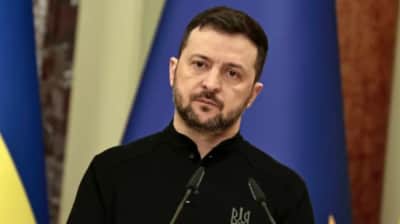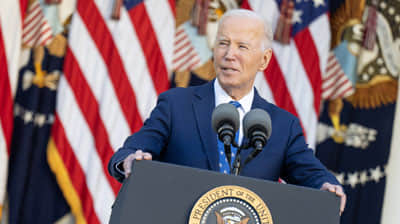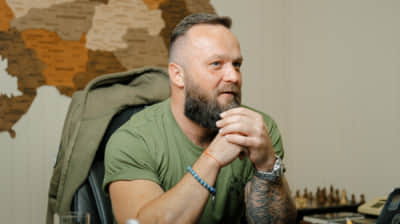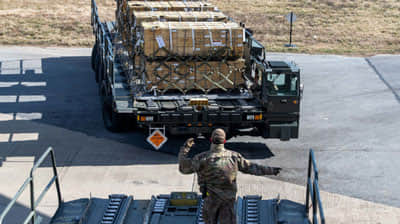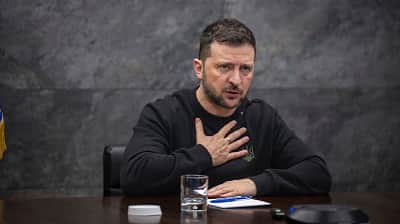Ukrainian language banned at Berlin rally following Russian attack on Kyiv hospital
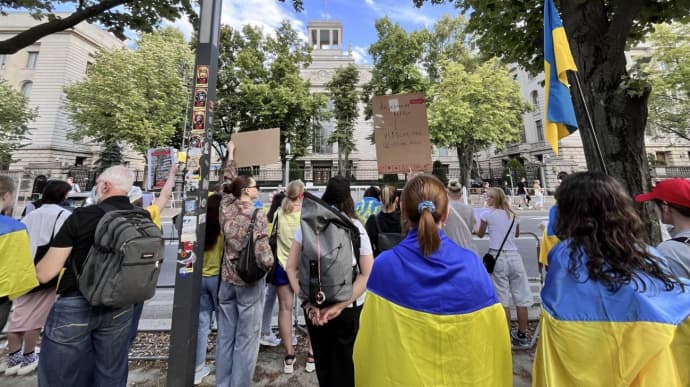
The German police have banned protesters who gathered in front of the Russian Embassy in Berlin following the Russian attack on the Okhmatdyt children’s hospital in Kyiv from making speeches in Ukrainian.
Source: Vitsche Berlin, a Ukrainian group that organised the protest, on Twitter (X), as reported by European Pravda
Details: Ukrainian activists in Berlin have organised a protest on the evening of Monday, 8 July – the day that Russia launched a large-scale attack on Ukrainian cities, which killed dozens and injured over a hundred people, including children who were being treated at the Okhmatdyt children’s hospital in Kyiv.
1/5 Gestern, am 8. Juli, versammelten wir uns vor der russischen Botschaft in Berlin, um unsere Wut und Trauer über einen weiteren schrecklichen Terroranschlag der russen zum Ausdruck zu bringen. #taurusjetzt #LetUkraineStrikeBack
— vitsche_berlin (@VitscheBerlin) July 9, 2024
📸: @m_dorn_ pic.twitter.com/XO5qcMvfUZ
The activists later said that the police have banned them from using the microphone to make speeches in Ukrainian.
"We are here to draw attention to Russia’s terrorist attack on the children’s hospital in Kyiv, to demonstrate and grieve together. But the Berlin police have banned us from speaking Ukrainian, and we’re very angry about it," they said.
Serhii Sumlennyi, an analyst who monitored the events in Berlin, said that some of the speakers still used Ukrainian, and the protest organisers were fined.
Vitsche Berlin later said that they were not fined and were awaiting a written response from the police. "But it’s difficult for us to understand why our language is banned when Russia is waging a war against our identity and our language," they posted.
The Berlin police explained that law enforcement had to be able to prevent unlawful calls to action during the protest, and they could not find a Ukrainian interpreter in time.
"The team leader and the head of the organising committee had agreed in advance that speeches would be made in German and English because unfortunately we could not find a Ukrainian interpreter with such short notice. In order to ensure a peaceful protest, we have of course allowed several speeches to be made in Ukrainian," the press service for the police said in response to the public outcry.
Um den Schutz der Versammlungsfreiheit aber auch die Einhaltung der damit verbundenen Regeln zu gewährleisten, müssen die Einsatzkräfte Redebeiträge & Zwischenrufe verstehen können. In dem üblichen Kooperationsgespräch vereinbarten Einsatzleitung und Versammlungsleiterin vorab… https://t.co/UowkPXl6AE
— Polizei Berlin (@polizeiberlin) July 9, 2024
Those in the German public who were outraged by the situation said they doubted the ban was justified.
Sumlennyi said it was "questionable why they don’t have at least one translator ready" and there was "no reason to expect any illegal calls at a Ukrainian demonstration", adding that the "ban on Ukrainian language stinks".
No such legal ban in general, but police may introduce extra bans. The problem: 1) questionable why they don’t have at least one translator ready; 2) no reason to expect any anti-constitutional calls or similar at a Ukrainian demonstration; 3) ban on Ukrainian language stinks.
— Sergej Sumlenny, LL.M (@sumlenny) July 8, 2024
Patrick Heinemann, a legal expert, believes that the police’s decision is not in line with the law because freedom of assembly includes freedom to decide which language to speak during the protest. "The burden to prove that Ukrainian language is used to broadcast something unlawful is for the police to bear," he wrote on X.
Auf anwaltlichen Hinweis, dass keinerlei Anhaltspunkte für eine Gefahr für die öffentliche Sicherheit und Ordnung vorliegen (auch mit Blick auf bisheriges Verhalten von @VitscheBerlin), die eine solche Verfügung rechtfertigen, verweist die Polizeiführerin auf den Rechtsweg. 2/3
— Patrick Heinemann (@P_O_Heinemann) July 8, 2024
Background:
- The Russians launched a strike on the Okhmatdyt National Children's Specialised Hospital in Kyiv, and a number of other targets in Kyiv and other Ukrainian cities, on 8 July. More than 40 civilians were killed in the Russian attacks.
- The US and the EU have called for an investigation into the attack on Okhmatdyt, which could be classified as a war crime.
- On 9 July, several embassies in Kyiv flew their flags at half-mast to honour the victims of the Russian attacks.
Support UP or become our patron!
